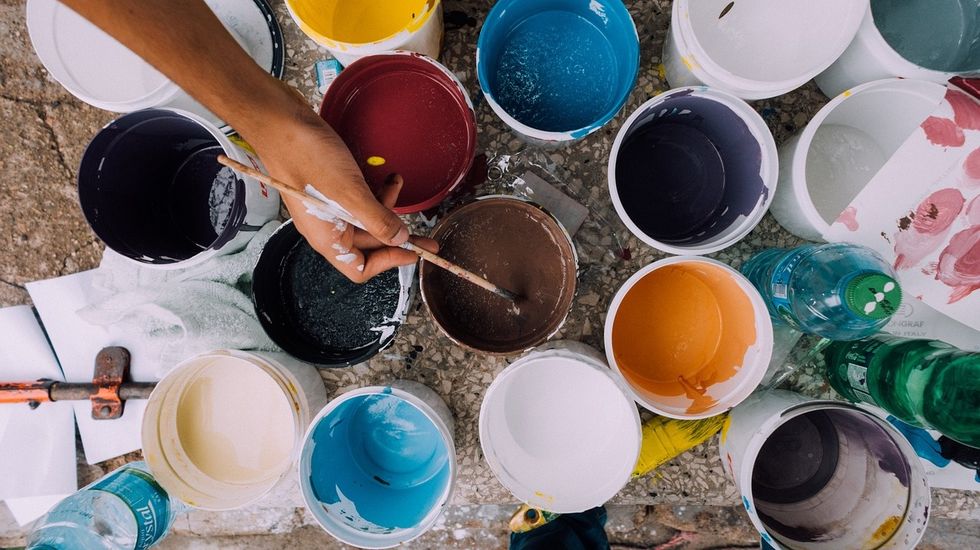As a child, I was used to being a quick learner and picking up new skills with ease. I was extremely opposed to criticism. I liked to think I could do it all despite being only in elementary. Activities were split into two categories: things I were good at and things I was not good at doing. Nowadays, there's a buzzword term for this: fixed mindset.
I hated the process of struggling to do well. If I was unable to pick up the skill in at least three tries, I told myself it was not something I could do. For a long time, I avoided cooking and being in the kitchen. I couldn't even make box macaroni and cheese without my sister complaining it was terrible. There was a blaring neon sign in my mind ordering me to stay away so I would not have to deal with the frustration of struggling at a task or failing.
I could have stagnated and stayed in my fixed mindset. Instead, my mom forced me to help in the kitchen. Eventually, a chef's knife became an extension of my hand. I could multitask in the kitchen. With practice, I gradually enjoyed being in the kitchen. I tried new recipes knowing full well it could result in an inedible substance. Did it matter? No. It just meant I had to try again and do better.
Cooking is now a stress reliever for me. In retrospect, my 14-year-old self would refuse to believe that I cook for fun now. Had I avoided cooking, a previously difficult task for me, I would have missed out in learning a vital life skill and a new hobby.
However, it's easier to look back when you've mastered a skill and laugh at how much you struggled in the beginning. Everyone's been in that position. Yet continuing to pursue a hobby in which you aren't the best or good at doing requires more perseverance. For me, the hobby I put the most work into is painting. There is something soothing in brush strokes and mixing paint.
The variety of colors I could choose to create my masterpiece fight for my attention, but I have no plan when I pick colors to spread on my canvas. I break free from always knowing what to do. If I mess up, there are no repercussions other than knowing not to repeat the same mistake. I'm not the best; I still struggle to blend colors, but I'm always happy with my end result even if it's not what I imagine (which is often.)
The more I paint, the better I become, but there is no pressure to become better. I simply enjoy watching paint stain a canvas and the feel of a paintbrush in my hands. Painting taught me I don't have to be good at something to be able to enjoy it. There is pleasure in watching yourself improve over time. As a result, I've become more patient with myself when I don't understand a topic instantly when I study and more appreciative of the skills I can do easily.
I could spend my time doing any of my other hobbies. I could bike, write, or as I mentioned before, cook. I can enjoy myself doing these hobbies without worrying if I'm doing something wrong. They are all great stress relievers. Nonetheless, I choose to paint. Painting reminds me to continue to cultivate my love of learning something new. Painting makes sure I always remember to strive to do better and not be happy with just doing what I know or what's good enough. Painting allows me to make mistakes without consequences. There is no failure in painting, just happy accidents.





 Lumiere figure at the Disney Store at the Ala Moana Shoppi… | Flickr
Lumiere figure at the Disney Store at the Ala Moana Shoppi… | Flickr








 StableDiffusion
StableDiffusion StableDiffusion
StableDiffusion 10. Extra BlanketsJuwenin Home 100% Cotton Knitted Throw Blanket
10. Extra BlanketsJuwenin Home 100% Cotton Knitted Throw Blanket StableDiffusion
StableDiffusion StableDiffusion
StableDiffusion File:Kishlaru familie.jpg - Wikimedia Commons
File:Kishlaru familie.jpg - Wikimedia Commons Photo by Hanna Balan on Unsplash
Photo by Hanna Balan on Unsplash StableDiffusion
StableDiffusion black blue and yellow round illustrationPhoto by
black blue and yellow round illustrationPhoto by 





 woman holding glass jar
Photo by
woman holding glass jar
Photo by 








